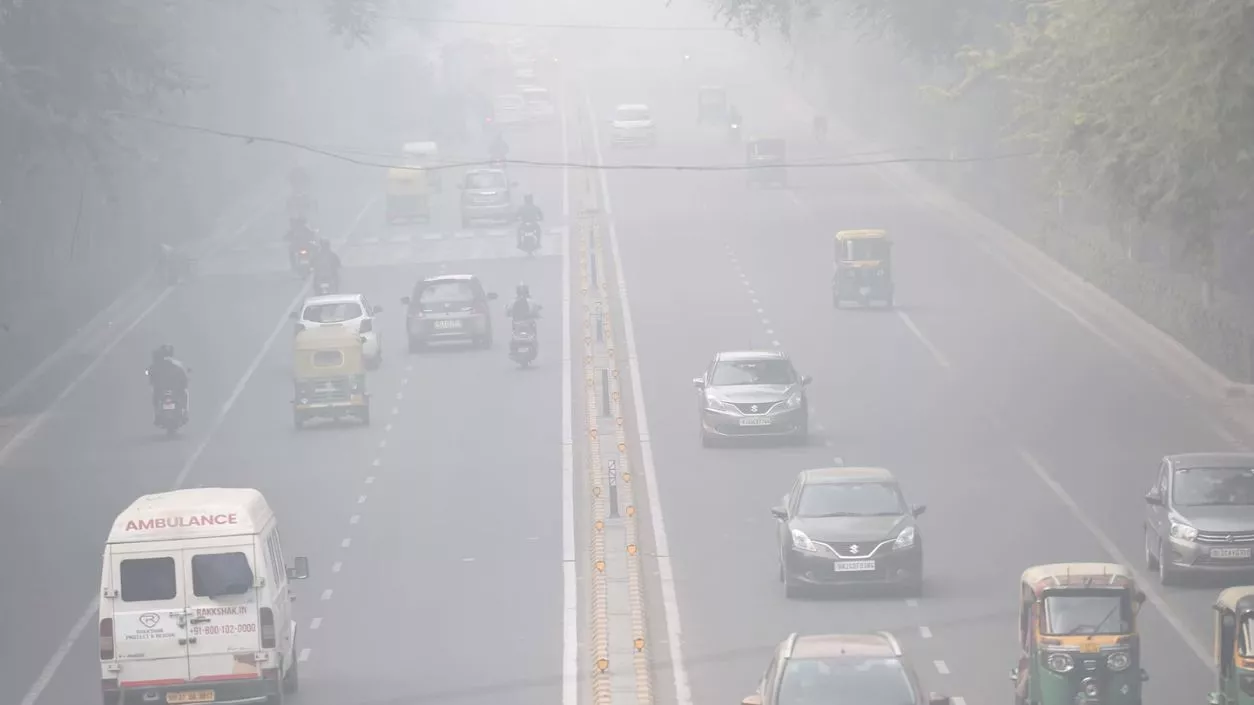Kolkata metro to be extended till Hooghly's Chuchura? Here's what Railway minister says
.gif)
.gif)

On Wednesday, the Supreme Court of India held a crucial hearing focused on the rising air pollution levels in the Delhi-NCR region, with a particular emphasis on the issue of stubble burning—a practice predominantly seen in the agricultural states of Punjab and Haryana. The court expressed serious concerns regarding the inaction of both state governments in enforcing regulations to combat the practice, which is widely regarded as a major contributor to the worsening air quality in the region, especially during the winter months.
The bench, led by Justice Abhay Oka and Justice Augustine George, criticized the Punjab and Haryana governments for their lack of effective measures against stubble burning, which involves the burning of crop residues left in fields after harvest. This process releases large amounts of particulate matter and harmful gases into the atmosphere, exacerbating air pollution levels. Justice Oka questioned the rationale behind the governments issuing only show-cause notices instead of pursuing legal actions against offenders, asking, “Is this the only approach you have?” His remarks highlighted the court's dissatisfaction with the failure to take decisive actions against those contributing to the pollution crisis.
In an attempt to defend Punjab's actions, senior advocate Abhishek Manu Singhvi argued that the state had complied with relevant legal provisions. However, Justice Oka sharply countered that no meaningful legal cases had been pursued under the Air Prevention Act. He pointedly remarked that there has been a glaring absence of accountability, demanding that the Chief Secretary of Punjab explain the apparent contradictions in the government’s statements regarding requests for funding to aid farmers with tractor usage and diesel procurement. Justice Oka issued a stern warning of potential contempt proceedings against the Chief Secretary if satisfactory explanations were not provided.
The court further revealed that out of over 1,080 reported stubble burning incidents in Punjab, only a fraction had resulted in FIRs, and penalties were applied to merely 473 individuals. Justice Oka stated, “If the governments were serious about enforcing the law, at least one case would have certainly been registered.” He emphasized that the lax approach signals to the public that violations of environmental regulations could occur without significant repercussions, thereby encouraging a culture of impunity.
Moreover, the court highlighted a troubling pattern of selective enforcement and nominal fines imposed on violators, noting that the government's actions—or lack thereof—constitute a violation of citizens' fundamental rights. Justice Amanullah, who also participated in the hearing, remarked on the discrepancy between the large number of registered cases and the minimal number actively pursued, questioning the effectiveness of the monitoring mechanisms in place.
The Chief Secretary of Haryana reported 400 instances of stubble burning in their state, with only 32 FIRs filed, prompting the Supreme Court to express concerns about the consistency of this data. The court criticized Haryana for not adequately addressing the issue and for potentially offering selective compensations. While the Chief Secretary claimed that approximately 100,000 machines for stubble management had been distributed to farmers, leading to a reduction in incidents, the court remained doubtful about the tangible impact of these measures.
The Supreme Court underscored the necessity for both the central and state governments to take immediate and robust actions to address the stubble burning crisis. The bench reiterated that the right to a pollution-free environment is not just a legal concern but a fundamental right enshrined in the Constitution.